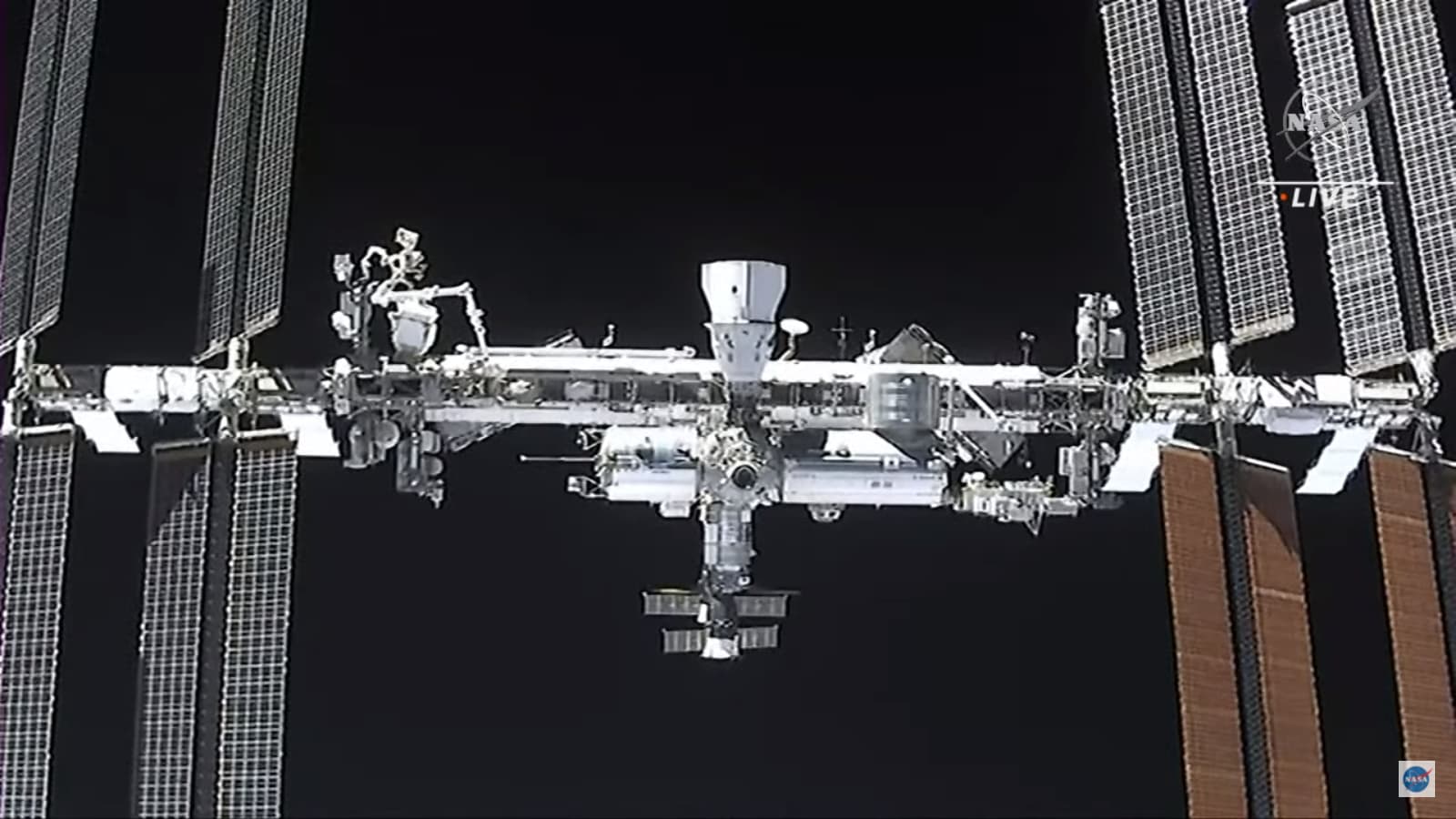Russia calls U.S. ‘hypocritical’ for condemning anti-satellite weapons test

The view from SpaceX’s Crew Dragon spacecraft Endeavour of the International Space Station, as well as the company’s Crew Dragon spacecraft Resilience, as the capsule approached to dock on April 24, 2021.
NASA TV
The Russian military destroyed a defunct satellite on Monday, showering low Earth orbit with shrapnel and causing astronauts to shelter on the International Space Station as the debris cloud passed by.
U.S. officials from the Pentagon, State Department and NASA condemned Russia’s anti-satellite weapon (or ASAT) test as “reckless” and “dangerous,” while U.S. Space Command confirmed that the test created more than 1,500 pieces of debris. The test destroyed the defunct, Soviet-era Kosmos 1408 spy satellite.
“Russia has demonstrated a deliberate disregard for the security, safety, stability, and long-term sustainability of the space domain for all nations,” U.S. Space Command commander James Dickinson said in a statement.
But the Russian military called the U.S. response “hypocritical,” saying in a statement translated by NBC that “the United States knows for certain that the resulting fragments” from the ASAT test “did not and will not pose a threat to orbital stations, spacecraft and space activities.”
Both the U.S. and Russia, as well as India and China, have previously destroyed their own satellites in ASAT tests. The U.S. most recently conducted an ASAT test in 2008, while Russia on Tuesday called out the Air Force’s testing of the X-37 spacecraft as showing the Pentagon “is actively developing” space weapons.
Industry experts believe the debris field created by Russia’s latest ASAT test will stay in orbit for years, creating a threat to other spacecraft. Earth imagery company Planet, which has more than 140 small satellites in low Earth orbit, emphasized that Russia’s ASAT test makes it the fourth country “to blow up its own satellite from a missile in the past 15 years.”
NASA confirmed that the International Space Station went into emergency procedures on Monday, closing the ISS hatches while crew sheltered. The ISS is “passing through or near” the debris field every 90 minutes, NASA said.
“It is unthinkable that Russia would endanger not only the American and international partner astronauts on the ISS, but also their own cosmonauts,” NASA administrator Bill Nelson said in a statement.




